PISC Burundi and CAPES+ groups claim they base their conclusion on remarkable social, political and economic improvements that have already been achieved.
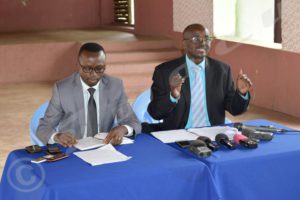
From left to right: Venant Hamza Burikukiye and Jean Marie Nduwimana, respective legal representatives of CAPES+ and PISC-Burundi
Two collectives of rights groups say inter-Burundian dialogue facilitated by EAC is no more necessary. Hamza Vénant Burikukiye and Jean Marie Nduwimana, respective legal representatives of PISC-Burundi and CAPES+, told a press conference on Tuesday that issues that called for the EAC facilitation had been resolved. For that, “there is no more need for inter-Burundian dialogue in Arusha”.
They said the East African Community’s “effort should rather be focused on helping Burundi in bringing refugees back home and preparing the 2020 elections”.
They also opposed the “meddling” of EAC in internal affairs of Burundi as far as amnesty for politicians wanted by the Burundi justice is concerned. “Let the question of amnesty or pardon be left to the Burundi people and to the country’s institutions in the strict respect of our independence and sovereignty”, they said.
It was in an apparent reaction to a recent request by Benjamin W. Mkapa, the EAC Facilitator in inter-Burundian dialogue, to President Nkurunziza asking him to offer amnesty to coup plotters of 2015 and allow them to take part in dialogue to end the crisis.
Jean Claude Karerwa Ndenzako, the President’s spokesman, said the Facilitator had asked for what Nkurunziza was not allowed to do by any law. “What the Facilitator requested is against national and international law”, he said. He explained that the President of Burundi is only allowed to pardon criminals who have been convicted of crimes. The President “would be charged with high treason” if he pardoned people who are still wanted by justice.
He further said even the UN does not allow people who have committed such crimes as attempting to overthrow institutions to participate in dialogue. The UN says such criminals should rather be brought to justice.
This new development escalates the divergence between the Facilitator, the Government of Burundi and its allied political parties and civil society organisations on the treatment of coup plotters.
The government opposition to the invitation of politicians wanted by the Burundi justice resulted in the government pulling out of the fourth round of inter-Burundian dialogue convened by the Facilitator between 16 and 19 February in Arusha.
During the dialogue session, Bujumbura asked in vain the government of Tanzania to arrest the politicians under arrest warrant.
The ruling party and CSOs allied to the government have insisted that politicians and other wanted rights activists be brought back to Burundi to face justice. They said criminals had no ideas to build the country.
The CSOs opposed the idea of giving immunity to those politicians because their protection would require the deployment of foreign armed forces to Burundi, an idea they and the government have always rejected adamantly.

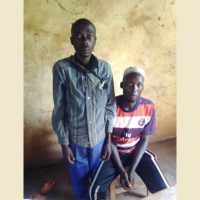
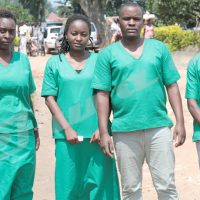
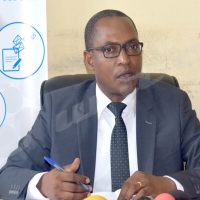

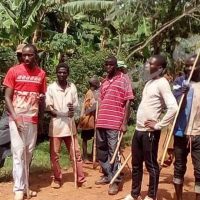













 IWACU Open Data
IWACU Open Data

